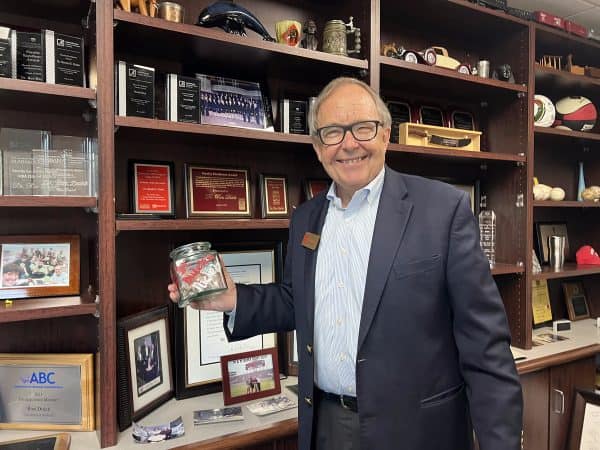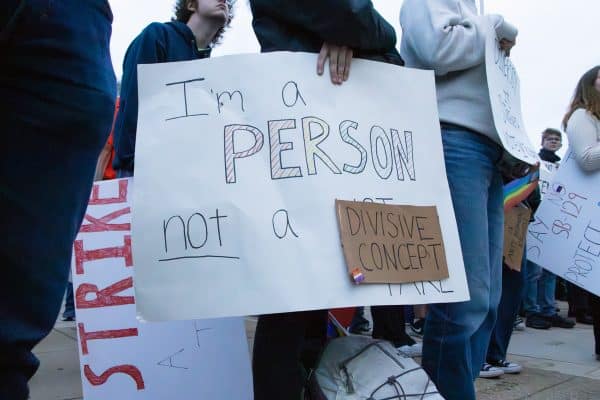Student voters should be respected and responsible
November 13, 2019
Tuscaloosa has a voting problem. In an op-ed from Kelly Horwitz which recently ran in the Tuscaloosa News and the Crimson White, the former District 4 representative on the Tuscaloosa City School Board reminded us of the long-standing history of corrupt and discriminatory voting practices in this community. Recent news regarding the Oct. 8 City Council special election for District 4 has raised even more questions about past and current voting practices, particularly in regard to student voting.
Discrimination has kept voters from Tuscaloosa polls for generations, and bad actors continue to influence and coerce student votes in order to achieve corrupt results. But, in our anger, we must remember that the answer to this problem is not to limit the ballot box, but to improve voting rights, civic education and civic engagement efforts in our community. A frightening legal cloud surrounds the polls. Voter ID laws, polling place closures, voter roll purges and other measures that have been put in place since the rollback of the Voting Rights Act in 2013 keep students and non-students alike away from the ballot box. To protect our democracy, we must lift that cloud and ensure voters understand the weight of their actions. This responsibility falls on all of us, especially those who live in college communities. There is no question that students should take their vote seriously.
In Ms. Horwitz’s op-ed, she says that her victory in the 2015 Alabama Supreme Court Case, Horwitz v. Kirby, in which the Supreme Court held that voters must be “domiciled” in order to vote, should keep students in Tuscaloosa from voting in this community. This decision should leave us deeply troubled.
Potential voters are presented with clear-cut requirements for registering to vote in Alabama: One must be a citizen of the United States, eighteen years old on election day and a resident of the state. There should not be a subjective requirement (like “intent to reside in Tuscaloosa”) held over those who wish to register to vote. This undermines the ability of college students to express their democratic will, which is their right as citizens of the United States and of the great state of Alabama.
Ms. Horwitz says that college students are at a stage in their life during which their futures are in question. This is true. What is not true is that our opinions, voices, and choices are invalidated by this period of change. Ms. Horwitz claims that college students don’t have “skin in the game” in Tuscaloosa. But my peers and I pay taxes and contribute to the Tuscaloosa economy, culture, and civic community like any long-term resident. It should be our prerogative to decide where we have “skin in the game” as long as we meet the legal requirements for registering to vote and casting our ballot. For a great number of students — at UA, Stillman and Shelton State — Tuscaloosa is home.
Furthermore, it is imperative to our democracy that voters not be subjected to undue burdens. College students like us have long been subject to discriminatory voting limitations, in part because our lives are changing and transitory. We should be looking to find new homes, new careers and new ways of living and thinking about the world. It is a time for experimentation and figuring ourselves out, and that includes traveling to new places and claiming a stake in those communities. College is a time to explore our civic duties and to bring new perspectives and voices to our democracy. It is our civic duty, as residents of this city, to vote here, precisely where we have “skin in the game.” My right to vote should not depend on how my life may change, nor what my intentions are for the future. Today, I have the right to be represented — and to choose my representation — in my city, my county, my state and my country. I am no less a citizen of this community than someone who has lived in Tuscaloosa for all of their life.
Unfortunately, Ms. Horwitz’s article comes across to many students as an attempt to scare us away from exercising our rights, and as such, her opinion should not be taken lightly. At this troubling inflection point in our state and country, it is critical that students learn and practice the habits of healthy democracy and civic culture in their day-to-day lives. This community — of which I am a part — should not allow voter intimidation of any kind, nor any corrupting influence that discourages Alabamians from being active in their community — directed at any group, whatever their age, creed, race or identity — to succeed in gumming up the gears of the democratic process.
As more information about the recent City Council special election comes out, we should use it as an example, and work to correct our civic processes. The campus community must directly face the twin elements that have allowed such odious results in the past. We must root out the secretive systems that allow a small group to corruptly influence elections for their benefit. We must, too, impart a healthy and vigorous understanding of the democratic process, free of discriminatory practices and accepting of all.











